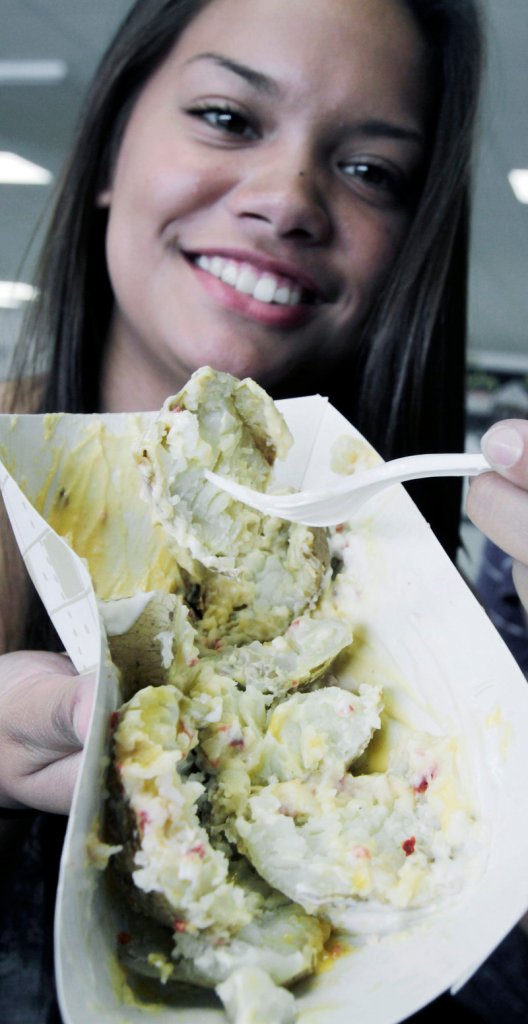WASHINGTON — Sen. Susan Collins, R-Maine, declared victory Tuesday in the potato war.
Collins won passage of legislation that allows schools to continue serving potatoes in school lunches and breakfasts without U.S. Department of Agriculture restrictions.
The amendment, added to the 2012 agriculture spending bill, says the agency can’t use its funds to set “maximum limits on the frequency of serving vegetables in school meal programs.”
The amendment, co-authored by Collins and Sen. Mark Udall, D-Colo., and backed by a bipartisan group of senators, including Olympia Snowe, R-Maine, was included by unanimous consent in the agriculture spending bill after it won the support of Herb Kohl, D-Wis., and Roy Blunt, R-Mo., the top members of the Senate Appropriations Committee’s agriculture subcommittee. Collins is a member of the Appropriations Committee.
The spending bill is expected to be approved this week by the Senate.
It would have to be reconciled later with a House version that does not include Collins’ amendment.
The House version contained a provision expressing concern about the potato restrictions, though it didn’t go as far as Collins’ amendment. Among the House opponents of the restrictions are Maine Reps. Chellie Pingree and Mike Michaud.
In a prepared statement, Michaud said, “The fact that both the House and Senate bills are clear on this issue definitely puts us in a stronger position to make sure it’s in the final bill.”
Collins, who picked potatoes as a youth in Aroostook County, says the potato is healthy as long as it is served baked or boiled.
Kevin Concannon, USDA undersecretary for food, nutrition and consumer services, said via email that the proposed rule would “improve the health and nutrition of our children and is based on sound science recommended by the Institute of Medicine.
“We will work with Congress to ensure that the intent of this rule is not undermined and that these historic improvements are allowed to move forward so that millions of kids across the nation will receive healthier meals,” said Concannon, a Maine native and former director of the Maine Department of Health and Human services.
Maine was the sixth-largest potato-producing state in 2010, according to the Maine Potato Board. Farmers in the state grow about 55,000 acres of white potatoes, and sold $140 million worth in 2009, the board has said.
Mainers lined up on both sides in the potato battle.
A group of school nutrition directors said it isn’t necessary to take potatoes prepared in a healthy way out of school lunches to make meals more nutritious.
But Jonathan Shenkin, a pediatric dentist in Augusta, has said that Maine’s congressional delegation is ignoring scientific evidence that starchy vegetables lead to obesity and is making “more of an economic decision.”
The issue of potato consumption and nutrition got attention earlier this year when a Harvard study found the potato to be a prime culprit in obesity.
MaineToday Media Washington Bureau Chief Jonathan Riskind can be contacted at 791-6280 or at: jriskind@mainetoday.com
Twitter: Twitter.com/MaineTodayDC.
Send questions/comments to the editors.


